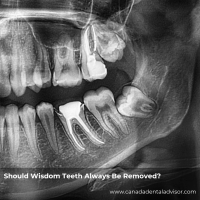Why Baby Teeth Matter
Before diving into care plans, let’s take a quick look at why baby teeth are so important:
-
Proper Nutrition: Healthy teeth make it easier to chew a variety of foods.
-
Speech Development: Baby teeth help children form sounds and words.
-
Smile Confidence: Early dental health impacts social development and self-esteem.
-
Guiding Permanent Teeth: They hold space and guide adult teeth into proper position.
Losing baby teeth too early due to decay or trauma can affect jaw development and alignment, sometimes leading to orthodontic issues later.
The Power of Individualized Care Plans
Every child is different—some may struggle with cavities despite careful brushing, while others may have unique spacing issues, thumb-sucking habits, or medical conditions affecting oral health. A one-size-fits-all approach simply doesn’t work.
An individualized care plan considers:
-
Age and developmental stage
-
Medical history and risk factors
-
Family dental history
-
Diet and oral hygiene routines
-
Child’s behavior and temperament
By tailoring treatment and prevention strategies to these factors, dentists can create a plan that meets each child where they are.
How Care Plans Improve Treatment Outcomes
When dentists personalize treatment, children receive targeted solutions rather than generic recommendations. For example:
-
A child with a high risk of cavities might benefit from fluoride varnishes and dietary counseling.
-
If spacing issues are noted early, a plan can include space maintainers or monitoring growth.
-
Children with special healthcare needs may require modified dental visits for comfort and safety.
This precision-driven approach reduces complications, improves treatment success, and ensures problems are caught early—saving time, money, and unnecessary stress.
Enhancing Patient Compliance
One of the biggest challenges in pediatric dentistry is getting kids (and parents) to follow through. That’s where individualized care shines:
-
Personalized Education: Parents are more likely to take recommendations seriously when they’re clearly linked to their child’s unique situation.
-
Kid-Friendly Strategies: For anxious children, plans may include shorter appointments, positive reinforcement, or introducing treatments gradually.
-
Behavioral Tools: Tracking progress with reward charts or interactive apps can help keep kids motivated.
When the care plan feels achievable and relevant, compliance naturally increases. Families understand the “why” behind each recommendation, making it easier to stick with daily routines.
Building Long-Term Oral Health Habits
Perhaps the most powerful benefit of individualized care plans is their role in shaping lifelong habits.
-
Early Prevention: Children learn the importance of brushing, flossing, and routine checkups.
-
Positive Dental Experiences: A personalized approach reduces fear and builds trust, ensuring kids grow into adults who aren’t afraid of the dentist.
-
Parental Involvement: Parents become partners in care, equipped with strategies that work best for their child.
These early foundations mean fewer dental problems later in life and a better relationship with oral health overall.
Tips for Parents: Supporting Your Child’s Care Plan
-
Follow the Plan Closely: Stick to the recommended schedule of visits, treatments, and home care routines.
-
Ask Questions: Don’t hesitate to clarify why certain steps are necessary.
-
Model Good Habits: Let your child see you brush and floss regularly.
-
Make It Fun: Use colorful toothbrushes, timers, or songs to keep kids engaged.
-
Stay Consistent: Habits stick when practiced daily.
Conclusion
Baby teeth are more than just a childhood milestone—they’re the foundation for lifelong oral health. With individualized care plans, dentists can provide tailored treatment that improves outcomes, encourages compliance, and fosters positive dental habits for years to come.
If you’re a parent, talk with your pediatric dentist about creating a care plan that’s unique to your child. Investing in their smile today means giving them the confidence and health to shine tomorrow.
Frequently Asked Questions
1. Why are baby teeth important if they eventually fall out?
Baby teeth guide permanent teeth into place and are essential for eating, speaking, and confidence during early development.
2. At what age should my child first see the dentist?
The American Academy of Pediatric Dentistry recommends the first visit by age 1, or within six months of the first tooth erupting.
3. What happens if my child loses a baby tooth too early?
Early loss can lead to misalignment. A dentist may recommend a space maintainer to keep room for the permanent tooth.
4. How can I help my child brush effectively?
Use a small, soft-bristled brush with a pea-sized amount of fluoride toothpaste (or rice-grain-sized for children under 3). Supervise until they can brush independently.
5. Are fluoride treatments safe for children?
Yes, professional fluoride treatments are safe and effective in reducing cavities when used appropriately.
6. How often should children visit the dentist?
Every six months, unless your child’s dentist recommends more frequent visits due to specific risks.
7. What if my child is afraid of the dentist?
Individualized care plans often include behavioral strategies like shorter visits, positive reinforcement, or a “tell-show-do” approach to reduce anxiety.
8. Can diet affect my child’s oral health?
Absolutely. Sugary snacks and drinks increase the risk of cavities. Encourage a balanced diet rich in fruits, vegetables, and water.











Leave a Reply